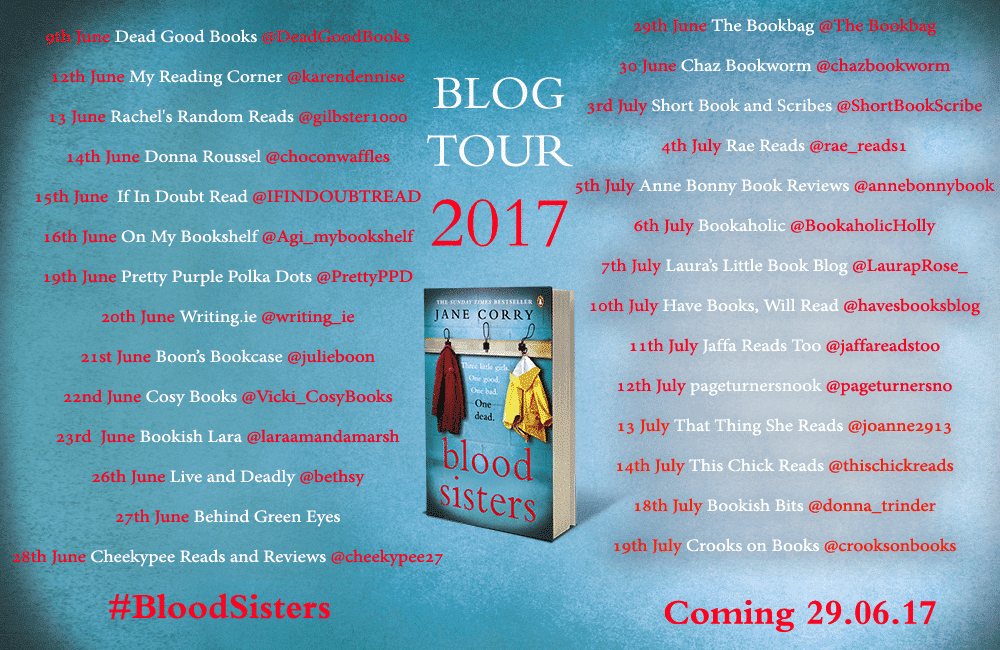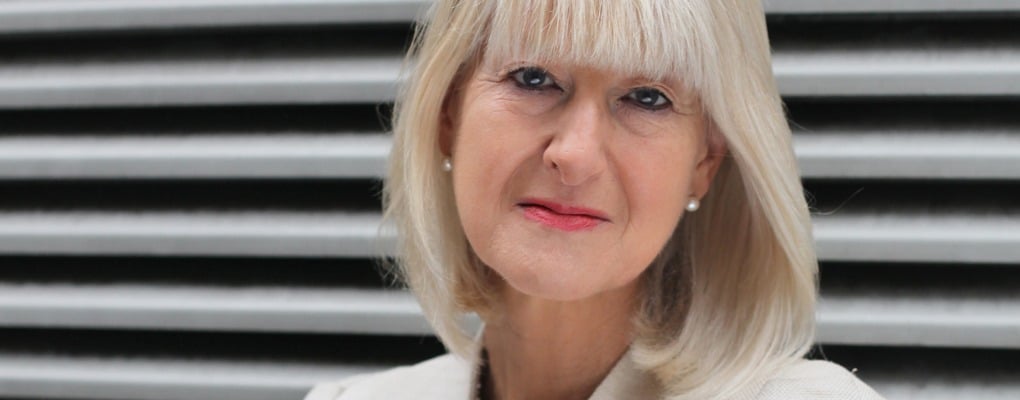Books
Jane Corry: what prison visits are really like
‘Fancy coming to our Family and Friends Day, Jane?’ asked one of my men when I’d been in prison for a year. ‘I’d like you to meet my missus.’
It’s not the kind of invitation you receive every day – especially when you’re behind bars. I should add here that I was there as writer in residence of a high-security male prison, not as an inmate. My role was to go in for two days a week for three years to help men write poetry, novels, short stories, life stories, and letters. I also lent a hand with Open University assignments and, in one case, a long-distance journalist course.
Initially, I was terrified by my new job. In fact, I’d only taken it for financial reasons after my first marriage broke up. But almost immediately, I’d become addicted. There was something thrilling – as well as challenging – about working with men who had committed headline crimes. My employers, an art and prison charity, had explained that writing can help inmates release their emotions and increase their self-esteem. This can reduce the risk of re-offending.
But what I hadn’t taken on board until I started, was that many prisoners did not seem like the kind of criminals I had in my head. Many looked like your average next door neighbour. Even a husband or son. And from their writing, I learned something shocking. Whatever their crime, they nearly all, to a man, had one thing in common. They were truly sorry. Not necessarily for the things they had done – but for the grief they had caused their families. Not their victims. But their own nearest and dearest.
Which takes me back to the invitation at the beginning. The Friends and Family Day was, I discovered, an event which was held about four times a year on each wing. Prisoners could invite anyone although they had to be vetted and approved by the powers that be. And amazingly, some of the guests were residents themselves at an HMP elsewhere. They would be brought by prison van and accompanied by a guard.
The idea behind the F and F Day is to keep contact going between families. Perhaps not surprisingly, there’s a high divorce rate either during a sentence or after it. It’s also hard for inmates to explain to loved ones during normal visiting hours what their life is like. But this way, guests are invited to sit in the community lounge, have tea in the kitchen, admire pictures and other handiwork on the wall and meet members of staff. (They can’t have ‘intimate’ time in the cells, by the way, just in case you’re wondering – as I did.)
‘But surely you want time with your wife on your own,’ I ventured to the man who had asked me to join him.
He looked awkward. ‘The thing is that I told her on the phone about our writing classes and she wants to see what you’re like.’
Surely she hasn’t got the wrong idea? Rather nervously, I agreed – only to find this wasn’t the only invitation I received. Two of my other students also wanted me to meet the family. I dressed with care for the event, making sure not to wear anything that might look in the slightest bit provocative. In fact, I generally wore trousers and a high neck jumper or t-shirt for that very reason. As I unlocked the double doors leading onto the wing (rather horrifyingly, I’d been given my own set which were clipped to my belt), there was a distinct buzz of excitement. Many of the men were milling around by the office, waiting for their guests, with an almost-school boy excitement mixed with anxiety that reminded me of my kids on parents’ evening.
Then they began to arrive.
I should say here that I had sometimes glimpsed visitors queuing up outside the prison – but only at a distance. Now they were close up, I realised that just like the men inside, these guests were a mixture. Some looked as though they owned the place, striding in confidently. (Had they been here themselves?) Others looked desperately embarrassed, glancing around with the same frightened timidity which I had experienced myself on my first few days.
One couple in particular struck me. They had, what some might call, distinctive plumy accents. Their son was one of my students; a quiet man who preferred one to one help rather than joining a group. Prison manners dictate that you don’t ask people what they’re in for. The three of them sat on their own, sipping tea out of green china cups which were reserved for best occasions. I respectfully kept my distance. In fact, I was a little worried about being mistaken for a gangster’s moll myself!
‘Jane!’ One of my other students was coming up to me. ‘I’d really like you to meet my mum.’ I greet a small very polite woman who shakes my hand gravely. I search for something to say but fortunately she gets there first.
‘My son has always loved reading,’ she says, holding my eyes steadily. It’s as if she is trying to tell me that whatever he has done, he’s an educated man and doesn’t belong here. Yet the irony is that it’s not uncommon to find professionals Inside: often their crimes were precipitated by drugs or drink.
I’m then invited to sit down at a table with a young father whose wife and son have come to visit. A few months earlier, I’d helped him write a short children’s story to send home. ‘We loved it, didn’t we?’ the wife asks her little boy. Then she holds her man’s hand. His eyes fill with tears. It’s difficult not to be moved. But at the same time, I can’t help wondering if there’s another family out there whose life has been ruined by this young man.
‘There you are, Jane!’ It’s the first student who invited me. ‘The missus is waiting for you in the tv room.’
My heart is in my mouth. Relationships between staff and prisoners are illegal. Obviously there’s no way I’d do anything inappropriate, but I can understand that a wife might feel threatened if her man kept going on about how much he enjoyed his writing classes that were run by a woman.
A very pretty, well-endowed woman greets me. She looks me up and down. Then she pats the seat next to her. ‘I want to ask you summat,’ she says. ‘Did my Kevin really write that poem what he sent me?’
I think back to the last poetry session. ‘Yes,’ I say. ‘He did.’
‘And you didn’t help him?’
Kevin is shifting from one foot to the other now.
‘No more than my editor might help me with my work,’ I say truthfully.
‘OK. That’s all right then. You can go now.’
Dismissed, I slunk back along the wing to the sanctity of my little office. What was that all about?
The next time I went back, Kevin came rushing up to me. ‘I’ve got some news. Me and my missus, we’ve got engaged.’
‘I thought you were already married.’
‘Not formal-like. I’d been asking her for ages but it was the poem that did it. She wanted to know it was all my own work.’ He looked a bit embarrassed. ‘And she also wanted to check you out. But it was all right cos she could see that you weren’t any competition.’
That’s a relief then.
On the serious side, curiosity got the better of me. I Googled the name of the quiet young man with the respectable parents. He was a murderer. I often think about his parents and all the others out there. How do you cope when a child has done the worst thing imaginable? Do you blame yourself for something you did or didn’t do? Or is it possible that you were directly responsible?
This is a question that inspired me to write Blood Sisters – a book that shows how domestic relationships can be pushed all the way to the edge and then over, taking you to the other side of the law.
* Kevin’s name is a pseudonym
Don’t miss the next stop on Jane Corry’s Blood Sisters blog tour!




Please note: Moderation is enabled and may delay your comment being posted. There is no need to resubmit your comment. By posting a comment you are agreeing to the website Terms of Use.